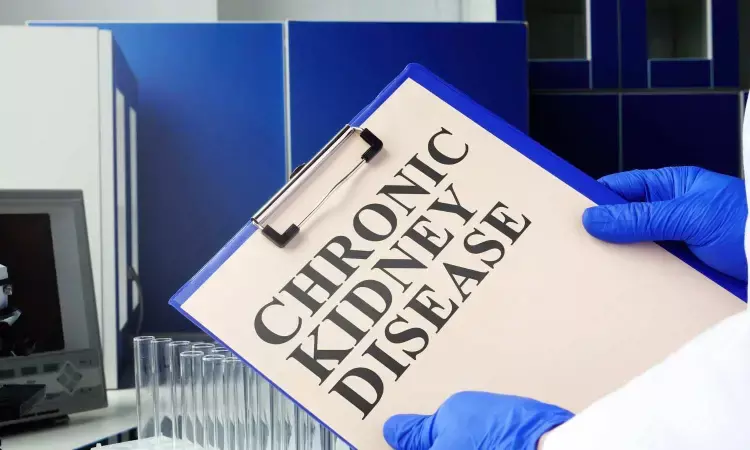- Home
- Medical news & Guidelines
- Anesthesiology
- Cardiology and CTVS
- Critical Care
- Dentistry
- Dermatology
- Diabetes and Endocrinology
- ENT
- Gastroenterology
- Medicine
- Nephrology
- Neurology
- Obstretics-Gynaecology
- Oncology
- Ophthalmology
- Orthopaedics
- Pediatrics-Neonatology
- Psychiatry
- Pulmonology
- Radiology
- Surgery
- Urology
- Laboratory Medicine
- Diet
- Nursing
- Paramedical
- Physiotherapy
- Health news
- Fact Check
- Bone Health Fact Check
- Brain Health Fact Check
- Cancer Related Fact Check
- Child Care Fact Check
- Dental and oral health fact check
- Diabetes and metabolic health fact check
- Diet and Nutrition Fact Check
- Eye and ENT Care Fact Check
- Fitness fact check
- Gut health fact check
- Heart health fact check
- Kidney health fact check
- Medical education fact check
- Men's health fact check
- Respiratory fact check
- Skin and hair care fact check
- Vaccine and Immunization fact check
- Women's health fact check
- AYUSH
- State News
- Andaman and Nicobar Islands
- Andhra Pradesh
- Arunachal Pradesh
- Assam
- Bihar
- Chandigarh
- Chattisgarh
- Dadra and Nagar Haveli
- Daman and Diu
- Delhi
- Goa
- Gujarat
- Haryana
- Himachal Pradesh
- Jammu & Kashmir
- Jharkhand
- Karnataka
- Kerala
- Ladakh
- Lakshadweep
- Madhya Pradesh
- Maharashtra
- Manipur
- Meghalaya
- Mizoram
- Nagaland
- Odisha
- Puducherry
- Punjab
- Rajasthan
- Sikkim
- Tamil Nadu
- Telangana
- Tripura
- Uttar Pradesh
- Uttrakhand
- West Bengal
- Medical Education
- Industry
Dotinurad may help restore kidney function among patients of CKD with hyperuricemia: Study

Chronic kidney disease (CKD) is a prevalent condition associated with various comorbidities, including hyperuricemia (HUA), which contributes to kidney function decline. Urate-lowering treatments have been explored to mitigate the detrimental effects of hyperuricemia on renal function. Hyperuricemia (HUA) is a noncommunicative disease whose prevalence has rapidly increased overtime. Hyperuricemia causes gout, including gouty arthritis, and also increases the risk of kidney dysfunction or chronic kidney disease (CKD).
A recent study, researchers investigated the potential benefits of dotinurad, a novel urate-lowering agent, on renal function in CKD patients with hyperuricemia. This study was published in the journal of BMC Nephrology by Hoichi Amano and colleagues.
The study enrolled 35 CKD patients diagnosed with hyperuricemia, with a mean age of 65.4 years, including 23 men. Patients underwent a 3-month observation period followed by 3 months of treatment with dotinurad. Changes in estimated glomerular filtration rate (eGFR) before and after dotinurad administration were assessed.
The key findings of the study were:
• During the observation period, the mean eGFR declined significantly.
• At baseline, the mean eGFR was 31.8 mL/min/1.73 m², and the serum urate level (sUA) was 8.1 mg/dL.
• However, during the treatment period with dotinurad, the eGFR improved to 36.5 mL/min/1.73 m², and the sUA decreased to 6.7 mg/dL.
• There was a positive correlation between the increase in eGFR after dotinurad administration and the decrease in sUA (R = 0.375, p = 0.0263).
The findings suggest that dotinurad administration in CKD patients with hyperuricemia may have beneficial effects on restoring kidney function. This novel urate-lowering treatment shows promise as a potential medication for preventing kidney function decline associated with hyperuricemia in CKD patients. Further research is warranted to validate these results and explore the long-term effects of dotinurad on renal outcomes.
Reference:
Amano, H., Kobayashi, S., & Terawaki, H. (2024). Dotinurad restores exacerbated kidney dysfunction in hyperuricemic patients with chronic kidney disease. BMC Nephrology, 25(1). https://doi.org/10.1186/s12882-024-03535-9
Dr Riya Dave has completed dentistry from Gujarat University in 2022. She is a dentist and accomplished medical and scientific writer known for her commitment to bridging the gap between clinical expertise and accessible healthcare information. She has been actively involved in writing blogs related to health and wellness.
Dr Kamal Kant Kohli-MBBS, DTCD- a chest specialist with more than 30 years of practice and a flair for writing clinical articles, Dr Kamal Kant Kohli joined Medical Dialogues as a Chief Editor of Medical News. Besides writing articles, as an editor, he proofreads and verifies all the medical content published on Medical Dialogues including those coming from journals, studies,medical conferences,guidelines etc. Email: drkohli@medicaldialogues.in. Contact no. 011-43720751


